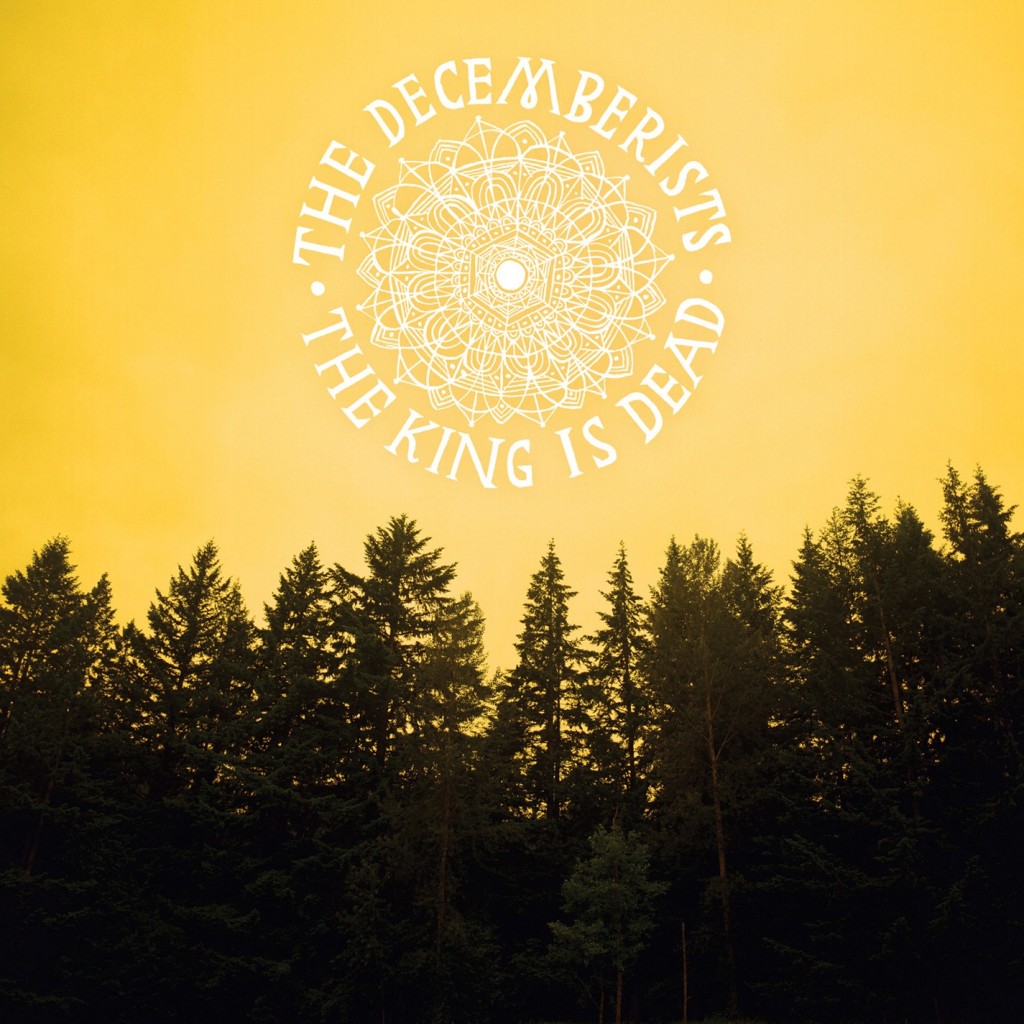
Portland-based folk-rock group The Decemberists released their new album on Jan. 14, 2011. The songs of The King is Dead take a more Americana bent – emphasizing the fiddles, harmonicas and even banjos now at their disposal.
Where 2009’s The Hazards of Love exhibited The Decemberists at the peak of their “epic” period (also including The Crane Wife), The King is Dead hearkens back to shorter, more traditional folk and country songs. The album has an organic feel to it, each song telling a story – many are reminiscent of past songs like “Red Right Ankle” of Her Majesty, “Eli the Barrow Boy” of Picaresque, and “Leslie Anne Levine” of Castaways and Cutouts.
As an avid Decemberists listener since the 8th grade, I’ve had the pleasure of watching the many twists and turns of their musical journey over the years. That being said, I can safely say that The King is Dead is the best Decemberists release since Her Majesty. From start to finish, the album is a warm springtime album that flows seamlessly, without ever losing momentum.
Although Colin Meloy’s voice is not for everyone, I wouldn’t be able to deny the immediate catchiness of the album’s first track, “Don’t Carry It All,” had it been my first exposure to the Decemberists. It comes on strong, setting the mood for the rest of the album – blaring harmonicas, furious acoustic guitar riffs and sweeping violins.
“Calamity Song” is a powerful second track with a steady beat and visceral lyrics. The main riff is twangy, almost bluesy and like “Don’t Carry It All,” immediately catchy.
Although a bad song doesn’t exist on the new album, there are certainly some other standout tracks.
As soon as the album released, “January Hymn” very quickly became my personal anthem for the first month of 2011. Colin Meloy’s voice soars on this particularly quiet folk song, sending chills down my spine every time I play it.
Another standout track is “All Arise!” certainly the most country song on the album. Bluesy pianos, electric guitars and banjos are the major focuses of this song.
“June Hymn” is by far my favorite song of the album. Like “January Hymn,” euphoric chills trickle down my spine every time I listen to the main guitar riff – or even when I play it on my guitar.
“This Is Why We Fight” has the most similar sound to past Decemberists’ epics (“The Infanta” of Picaresque, “The Island” of The Crane Wife, etc.) Its melody sweeps you off your feet with its complex instrumentation and dramatic build-up.
And finally, “Dear Avery,” the closing track of the album, is sure to become a new Decemberists classic. The lyrics are melancholy but captivating; the guitar is simple but speaks volumes. The song is certainly worthy up against other Decemberists’ closing tracks.
When I finished my first listen through The King is Dead, I clearly remember my first thought being, “This would be amazing to see live.” I was happy to see them back in September at Bumbershoot, especially when they played a few songs that were, at the time, previews of the new album. I remember having a distinct feeling that the new album was going to be good – and I was more than right.
